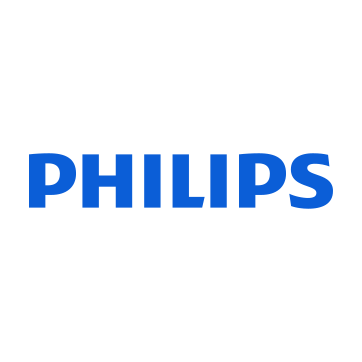VG NEWS
Why Monitoring (and Engagement) on EU Affairs has Become a Necessity for Companies?
VG NEWS
Why Monitoring (and Engagement) on EU Affairs has Become a Necessity for Companies?
Zagreb, May 5, 2023 – Vlahovic Group CEO Natko Vlahovic and Tomislav Lacovic, Partner in VG, wrote an article about the growing necessity for companies to start engaging in EU affairs. It got published recently in the News&Views Magazine of the American Chamber of Commerce in Croatia.
In conversations with entrepreneurs, I increasingly hear complaints that regulatory pressure is becoming more and more demanding to implement in their business, and the compliance costs are becoming higher. The conclusion, entrepreneurs say, is that they have less time and focus for their core business, and time is spent on complying with new regulations that simply catch them by surprise.
New regulations arise from new policies, and the drivers of new policies are increasingly EU legislators, not the local government. And indeed, when we start to analyze with entrepreneurs which regulations specifically burden them, we very quickly determine that they are EU legislative acts – directives and increasingly often regulations and delegated acts of the European Commission etc.
THE LEGISLATIVE FRAMEWORK OF OUR ECONOMY HAS BECOME DOMINANTLY SHAPED IN BRUSSELS
According to the analysis of the Vlahovic Group, in the current convocation of the Croatian Parliament as many as 55% of the adopted laws resulted from the transposition and implementation of EU legislation, and the other 45% are the so called domestic laws. Already most of the legislation is dictated by Brussels, and when it comes to economic topics, this ratio is even higher. This raises the question of when our economic entities and associations should become active in advocating and protecting their interests.
“ERA OF DIRECTIVES” PASSED, SHRINKING SPACE FOR EXCLUSIVELY NATIONAL ENGAGEMENT
The answer is – it depends on the type of EU legislative act. If it is a directive, which prescribes goals but shall be transposed into national legislation, leaving room for a national legislator to prescribe how, most business entities will not lose much if they engage with national institutions after the EU directive has passed and before or during national transpositions. If it is a regulation, the game is played in Brussels (not excluding the inputs coming from the capitals!), from the very beginning of its drafting. It must be said that the “era of directives” is behind us. Today’s European Commission is strongly marked by the trend of passing legislation directly applied in the Member States, therefore it is more important than ever to advocate your interest in Brussels. Another related trend is that the Commission (since the 2009 Lisbon Treaty) is assuming more power by passing an increasing number of delegated regulations, thereby prescribing various “technical details”.
TIMELY ENGAGEMENT IN ADVOCATING AND PROTECTING BUSINESS INTERESTS
It is a fact that the number of Croatian businesses engaged in interest representation at the EU level is still very low. It is almost impossible for individual businesses, without the support of professional consultants, to navigate the very complex decisionmaking process of the EU. It is more likely that such an unguided engagement, due to the “scattering effect” within the Brussels bubble with many points of influence, will lead to loss of resources and disappointment, rather than the desired outcome.
There are several models of engagement towards EU institutions, and all of them have in common that the building of coalitions and connections is essential for effectiveness. This is the answer to why there are so many professional lobbyists in Brussels, as well as various associations, platforms and coordinations that are also considered lobbyists and are registered in the EU transparency register.
Despite the perception that professional consultants/lobbyists are the most numerous category, they are one of the smallest categories (only 6% of total registrants) and the only one whose number has been decreasing in recent years. The market is consolidating, but the number of employed consultants is growing. Among the categories of registrants, the number of in-house company lobbyists and professional associations is growing the fastest, the trend that indicates two things from the beginning of the text – companies establish their own mechanisms for monitoring EU policies through dedicated departments, and when they actively engage in interest advocacy, they utilize professional associations and execute campaigns in concert with professional lobbyists.

Wojciech
Arszewski
Public Affairs Director CEE, UPS
![]()
VG in Croatia has always supported us timely in a very professional manner. Great team with the right mindset and attitude.

Head of Government/Public Affairs for CEE and Russia, Philips
![]()
Vlahovic Group is a very engaged team of professionals with a high level of responsiveness and hands-on management. They help clients attain relevant information from business and political sectors in the Western Balkans.

Joana Sánchez
Klosinska
VP CEE Public Policy, Mastercard
![]()
Working with VG for over 5 years we encountered many opportunities where strategic positioning and engagement support was essential. Each and every engagement was met with the highest level of professional dedication, energy and passion. Excellent understanding of the EU and national regulatory landscape as well as our company’s business objectives.

Marek
Matraszek
Chairman, CEC Group
![]()
We have been leading the government relations industry in CEE since the early 1990s, and would not be where we are today without strong, professional and reliable partners. The Vlahovic Group has always exceeded expectations, and we are only too pleased to recommend them to our clients.

Paul Hatch
CEO - Nextlaw Networks,
Senior Advisor - Dentons
![]()
Vlahovic Group is a charter member of the Nextlaw Public Affairs Network and we could not be more pleased with our association. Vlahovic Group is one of a very select group of leaders in the public affairs arena, not just in Croatia, but throughout the Balkans. We have worked on several projects with VG, all with great success and outstanding results.

Mark Boris
Andrijanic
Head Public Policy CEE, Uber
![]()
Uber CEE hired Vlahovic Group just before we entered the Croatian market in 2015. Their highly professional team helped us secure a successful launch and lay the foundations for a digital transformation of the entire taxi market in Croatia.

NEWS from Zagreb's St. Mark's Square
Vlahovic Group sends a biweekly political update on the activities of the Croatian Government (schedules and notable news). The update includes a listing of the activities of the PM and other members of the Government, new appointments, a selection of press releases by different Governmental departments and executive agencies. By subscribing, you agree to recieve this newsletter. You can unsubscribe anytime. The collected data is used only for registration and sending the newsletter and will not be used for other purposes.
